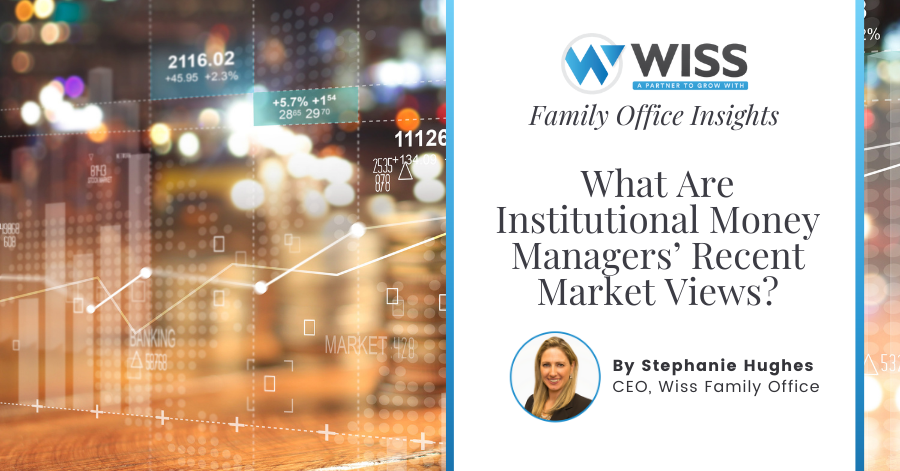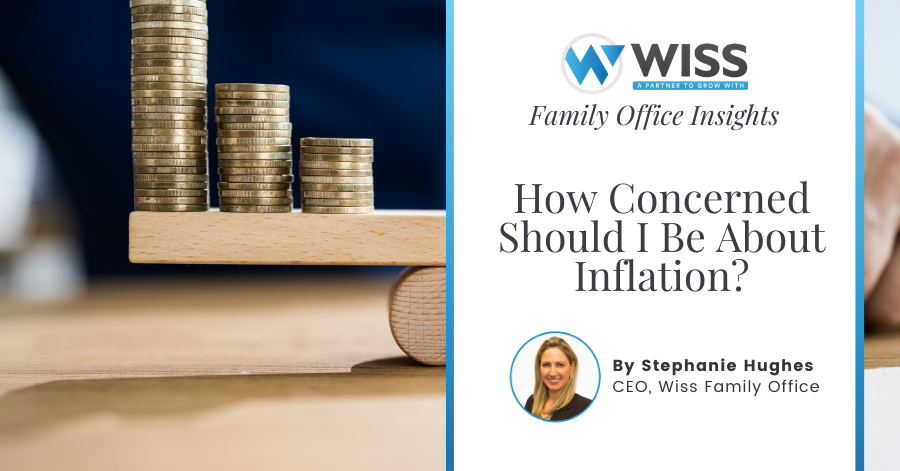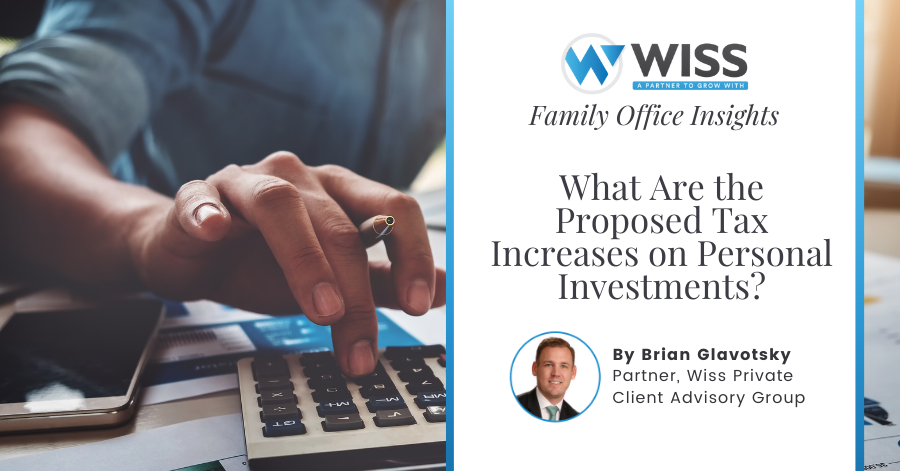What our managers think…about the Economy
Clearbridge Investments: Signals flashing all green
- The ClearBridge Recession Risk Dashboard has all 12 underlying indicators flashing a green expansionary signal. Recent overall readings are among the strongest in its history (data since 1964).
- Today’s ebullient macro and market environment is likely to give way to a period of slower, yet still robust, economic and earnings growth powerful enough to elongate the current bull market.
- Unease over evolving Fed policy and an inflation scare could keep equities rangebound in the near term.
- Leading economic indicators (LEI) are at levels historically associated with strong returns. Stock buybacks suggest weakness could be viewed as a buying opportunity.
- A healthy consumption outlook and an expected rise in capital spending are further reasons we believe long-term investors should take advantage of any market pullback.
Western Asset: Plotting the path from peak growth
- We see a near-term cyclical outlook that is very strong, combined with a secular downshift in the recovery—and inflation rates—over the long term.
- Fiscal and monetary policy support over the next six to 12 months should ensure the recovery continues.
- Fiscal impacts were front loaded and a big positive this year, but are set to slow significantly next year.
- Today’s challenges are long-term trends which were magnified by COVID—heavy debt loads, demographics and technology displacement.
- The last of these could act as a damper on inflation.
Brandywine Global: How does the savings anomaly get resolved?
- After two clearly defined macroeconomic phases of this public health crisis—the bust followed by a V-shaped recovery that is winding down now—a third phase is unfolding.
- The first two phases created massive distortions in the economic profile of the global economy and macro policy, and it is unclear which are permanent or temporary. How fast they unwind, if they do, will be among the primary influences of the third phase.
- Perhaps the biggest anomaly of them all is private sector savings, which has risen sharply around the world. How transitory or lasting will the savings and cash balances accumulated during the crisis prove to be?
- Deposits held in the U.S. commercial banking system (M2) have risen more than $3.5 trillion above the pre-pandemic trend. What happens to this cash is crucial to the outlook: If spent, it’s potentially explosive inflationary fuel equal to 16% of gross domestic product (GDP); if unspent, the economic expansion may lurch over a fiscal cliff.
- In our view, it is too soon to answer the inflation question. A longer-lasting inflationary outlook seems unlikely without a meaningful break in the U.S. dollar. The second half of the year should resolve any job market distortions, which will help clarify labor supply. By year-end, the U.S. unemployment rate should be much lower.
…About Fixed Income
Franklin Templeton Fixed Income: Rich valuations a concern
- Active risks to inflation and yields are skewed to the upside as normalization has spurred a consumption-led recovery.
- Supply bottlenecks, rising commodity and input prices, labor shortages and wage increases, a growing stockpile of excess savings, ultra-low borrowing costs, and massive fiscal stimulus are all contributing to a rapid increase in inflation. While we do not believe inflation will get out of hand, it will be difficult to keep it subdued.
- Rich valuations are a concern. Many risk assets have rebounded sharply; some are trading tighter than pre-COVID, with some sectors trading at or near all-time historically tight valuations.
- While the economy and accommodative fiscal and monetary environment should provide support for the market, the risk-reward balance is skewing unfavorably in many areas of fixed income.
- We continue to see the potential for a rise in yields, and limiting duration remains one of our key themes. We remain slightly optimistic on risk assets given the potential for yield curve steepening, and we continue to favor shorter duration and floating rate fixed income assets with relatively less sensitivity to rising rates.
- Pockets of value remain, primarily exposures most directly affected by the pandemic. Given the deterioration in fundamentals for many issuers, not all of these will ultimately rebound. Active managers are best positioned to conduct a rigorous, fundamental assessment.
Western Asset: Don’t bet against the spread
- We continue to favor spread product in this environment of reopening and recovery.
- Investment grade credit spreads are back at pre-COVID levels. In a global context, the US still presents an opportunity to buy credit with size, liquidity and yield advantages.
- We are being more thoughtful on the high yield sector. Credit quality continues to improve and could see some upgrades.
- We really like bank loans. Valuations are good and fundamentals are improving. The rate story is a positive tailwind.
- Policy distortions make agency mortgages less attractive.
- We think emerging markets are an opportunity worth considering. Our expectation is that EM will reconnect with the overall pickup in global growth and commodity prices. China still has room to ease.

…About US Equities
Clearbridge Investments: Growth or value? Maybe both…if quality
- Volatility over the next six to nine months appears likely to pick up as investors face questions about the durability of fiscal stimulus, tapering and inflation as well as the strength of economic and earnings growth.
- We believe you can own both growth and value stocks in a rising rate environment as long as the growth companies are coming through with the expected growth.
- Equity performance is being propelled not only by the strength of the reopening, but the flood of fiscal and monetary stimulus. This distorts some of the traditional ways that we think aboutbear markets, bull markets and cycles as a whole.
- We have generally taken on a more pro-cyclical tilt over the last six to nine months to benefit from what we see as a resurgence in economic growth probably for a several year period.
- In the initial stages of the rebound, everything went up on the value spectrum, much of which was lower-quality companies with weaker balance sheets and more operating leverage.
- At this point, low-quality stocks likely have made their move; we believe positioning should be more toward high quality versus low.
- There is not as much trend-following or sector leadership in the market, it’s rotating, so it does put the burden on the portfolio managers in terms of stock selection and active management, and we consider that a good thing.

…About Emerging Markets
Franklin Templeton Emerging Markets Equity: Positive outlook with medium-term risks
- Our overall outlook for EMs remains positive as they continue to chart a path out of the pandemic, though some risks may impact our medium-term view.
- That said, short-term air pockets could create longer-term investment opportunities, underpinned by EMs’ structural strengths and the competitiveness of their companies.
- We believe that local, consumption-driven growth will remain a core theme for EM economies. Companies with strong premium-brand positioning and superior products should see sustainable and higher- than-average industry growth levels in the years to come.
- Demographic and societal shifts, such as aging populations and COVID-19, have intensified pressures on health care systems, driving demand for hospitals, medical suppliers and pharmaceuticals.
- We also expect wider adoption of digital, fintech and technology solutions to accelerate economic growth, while creating opportunities for well-positioned, innovative companies.
- We continue to see manufacturing companies in key Asian economies gain share globally, including China, Taiwan and South Korea.
…About Global Equities
Templeton Global Equity: Europe recovering, Japan restructuring
- Both Japan and Europe are geared to the global growth cycle, and we believe they should continue to perform well as economies reopen, and stimulus spending begins to take hold.
- We are generally positive on European equities. The eurozone, one of the strongest-performing regions year to date, is one of the cheapest global regions. It’s home to leading industrials and consumer companies with upside to reopening and recovery.
- The outlook for the EU is improving as it moves toward the first ever bond issued by the European Commission and jointly backed by member states.
- We also find Japan attractive. Corporate reform initiatives started under former Prime Minister Abe have continued under current PM Suga. Companies are restructuring and improving balance sheets by selling listed assets or buying in minority investments. They are reducing cash through higher dividends and buybacks—driving the focus to improve return on equity.
- Similar to after the global financial crisis, the initial phase of last year’s rebound was mostly a junk rally. More recently, the junk trade has begun to falter and the value rally has broadened out to higher-quality stocks and other types of value.
- Looking across sectors, many tech companies, outside of semiconductors, which we’ve owned and have performed well, have been too expensive for us to be comfortable owning. Much of what has gone right for some of these companies—globalization, low interest rates, low tax regimes, liberal regulation—now seems to be reversing, but many stocks remain priced for perfection.
…About Alternatives
Clarion Partners: A real (estate) inflation hedge
- We believe 2021 marks the beginning of a new real estate market cycle. As demand continues to recover across most markets and property sectors, rising occupancy and higher effective rents should drive higher net operating income, supporting higher dividend and property appreciation.
- Demand and supply fundamentals have shown encouraging signs of acceleration in recent months, especially in distribution warehouse, rental housing, life sciences facilities and infill necessity retail.
- With this synchronized global rebound, robust fiscal and monetary stimulus programs, and strong consumer pent-up demand, one of the potential concerns for investors today is rising inflation.
- Real estate has historically been able to at least partially hedge against inflation. The correlation between real estate income growth and the CPI Index from 1992 through 2021 is approximately 96%.
K2 Advisors: Rich environment for active management
- Given the uncertainty in the underlying core markets, we believe it is prudent to focus on alpha generating non-directional strategies.
- Active, long-duration, fundamental long/short equity managers may be challenged by the market’s volatile rotations. Investors are focused on macro, and companies are navigating toward “back to normal” while their stocks simultaneously trade at high valuations.
- The outlook is favorable for convertible and volatility arbitrage given continued strong issuance and inefficient pricing.
- Spreads remain near historic tights, which favors trading-oriented strategies such as long/short credit at the expense of directional ones.
- In global macro, shifting market narratives around future policy paths may favor nimble and opportunistic trading styles.
Key Themes
Quality, Quality, Quality, Quality
As of late July, there hadn’t been even a modest stock market pullback (>5%) in more than nine months. The liquidity-fueled recovery rally was led in part by stocks of lesser quality, whose greater recession-induced downside fears ameliorated. The next expected phase of the bull market should experience bouts of volatility, but the leaders are more likely to be higher-quality, whether in terms of financial strength— earnings, operating margins and balance sheet quality—or by virtue of their sustainable growth drivers, talented management or improving competitive positions.
Active managers may benefit from their ability to distinguish between higher- and lesser-quality equities, while opportunistically taking advantage of any volatility that arises along the way. Stock ETFs with a quality tilt may fare better than broader indexes.
Whether seeking large cap or small, value or growth, US or global, think quality first, then think it again. Beware overvalued leaders that haven’t proved themselves, and lesser quality performers that require optimal conditions.
Esg — Reaching An Inflection Point
Environmental, social and governance (ESG) investing is poised to be a defining characteristic for markets in the years ahead. ESG factors will play a major role in rebuilding the post-pandemic world, as damaged economies recover amid pre- existing structural problems.
We could be on the cusp of an ESG-driven value cycle addressing climate change. The race is on to net zero for asset owners, as pensions, sovereign wealth funds, endowments, and foundations have declared their intent to have net-zero portfolios by 2050 or sooner. Consumers are trending to lower-carbon products, and governmental and corporate commitments to reduce emissions and reach carbon neutrality are becoming the norm. This has created long-term secular demand for products and services that will help us transition to a lower-carbon economy.
Consider Spread Products In Bonds
Corporate bond spreads may be near their tightest, but could become even tighter through the balance of 2021 as global growth recovers exponentially. Positioning to pick up yield in corporate credit may be well-compensated over the next 12 months. We also believe active management will be key in these conditions, as the opportunities across corporate credit markets will be selective and uneven. Staying on the shorter end of the curve may be beneficial. Pro-cyclical sectors, such as commodities, basic materials and health care technology, could provide interesting opportunities.
Diversify Sources Of Income
Diversified, multi-sourced income funds can flexibly search out the best opportunities—even within a single company’s capital structure—for the best yield/risk scenarios as conditions warrant.
Global bonds often can present uncorrelated opportunities with yield advantages and total return potential.
Real estate traditionally has generated an income stream with returns that are not correlated with bonds or stocks. All are options that may provide diverse sources of income outside of traditional bonds that may improve your income profile.
This document contains certain forward-looking statements which indicate future possibilities. Actual results may differ materially from the expectations portrayed in such forward-looking statements. As such, there is no guarantee that any views and opinions expressed in this document will come to pass. Additionally, this document contains information derived from third party sources. Although we believe these sources to be reliable, we make no representations as to the accuracy of any information prepared by any unaffiliated third party incorporated herein, and take no responsibility therefore. For information about your particular account holdings, please review the statements you receive directly from the custodian of your accounts or contact us. All expressions of opinion reflect the judgment of the authors as of the date of publication and are subject to change without prior notice. Investment advisory services offered through Wiss Private Client Advisors, LLC.

 Previous
Previous





